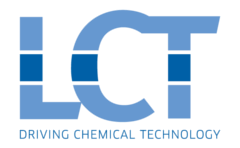Process intensification and Innovation in Olefin Production by Multiscale Analysis and design (OPTIMA): measuring intrinsic kinetic data
Aim
Producing high-quality kinetic data on pyriolysis and Oxidative Coupling of Methane
Context
This project focuses on process intensification for turbulent reacting systems, one of the most challenging problems in chemical engineering and fluid dynamics due to the complex and highly non-linear interaction between the flow motion and the chemistry. The applications will be focused on the olefin production via steam cracking and Oxidative Coupling of Methane (OCM).
OPTIMA will be a major game changer for the chemical industry as it is today. It could transform the petrochemical industry by valorizing methane and converting it to a platform molecule through OCM. Not only will this result in energy savings per ton olefin produced compared to the current state of the art, but it will also reduce the European dependence on crude oil because natural gas or biogas will be used instead. This will be driven by a unique modelling framework that will allow to go way beyond the considered applications.
Program
1. Kinetic investigation of OCM with and without selected catalyst
Collect kinetic data using La2O3 and NaMnW/SiO2 in a fixed-bed reactor. Along with the desired catalytic performance, the mechanical properties (e.g., attrition resistance) of the catalyst will be investigated in a cold-flow rotor unit. Based on the measured selectivity, activity, and mechanical properties the best catalyst will be selected.
2. Kinetic modelling of catalytic and free-radical chemistry relevant for OCM
For OCM, a series of complex heterogeneous and homogeneous free radical reactions occurs simultaneously. Therefore, the OCM kinetic model should consist of two sub-models: one for the description of the reactions occurring in the gas phase (homogeneous) and the other one for the reactions involving surface species (heterogeneous). Whether a heterogeneous or a heterogeneous-homogeneous mechanism is predominant, depends on three important variables: the catalyst, the reaction temperature and the partial pressures of the reactants. The selected kinetic models will be validated with experimental data. The qualitative performance of the kinetic model, i.e. its ability to predict the correct trends for varying operating conditions, will be evaluated rather than its quantitative performance
